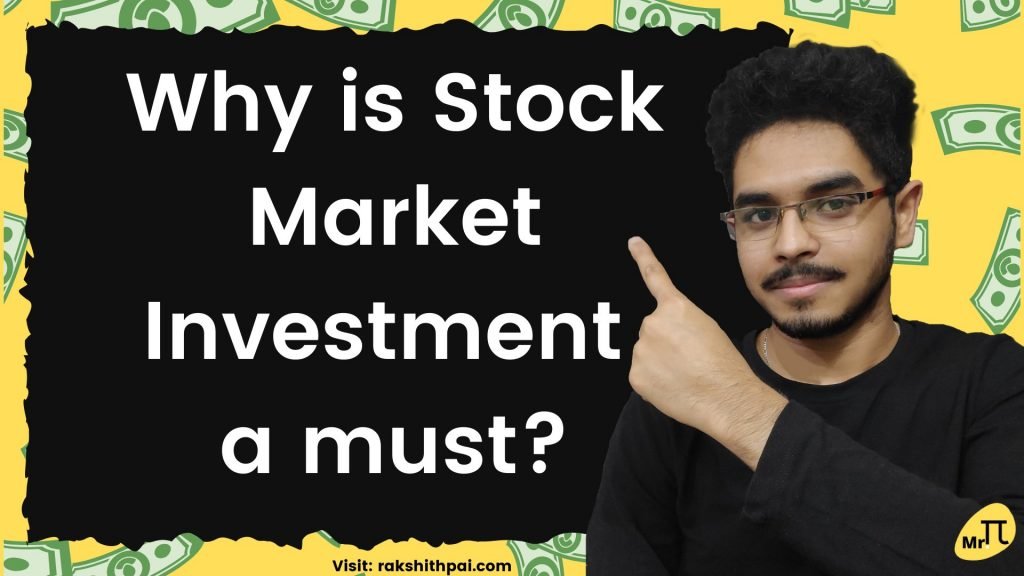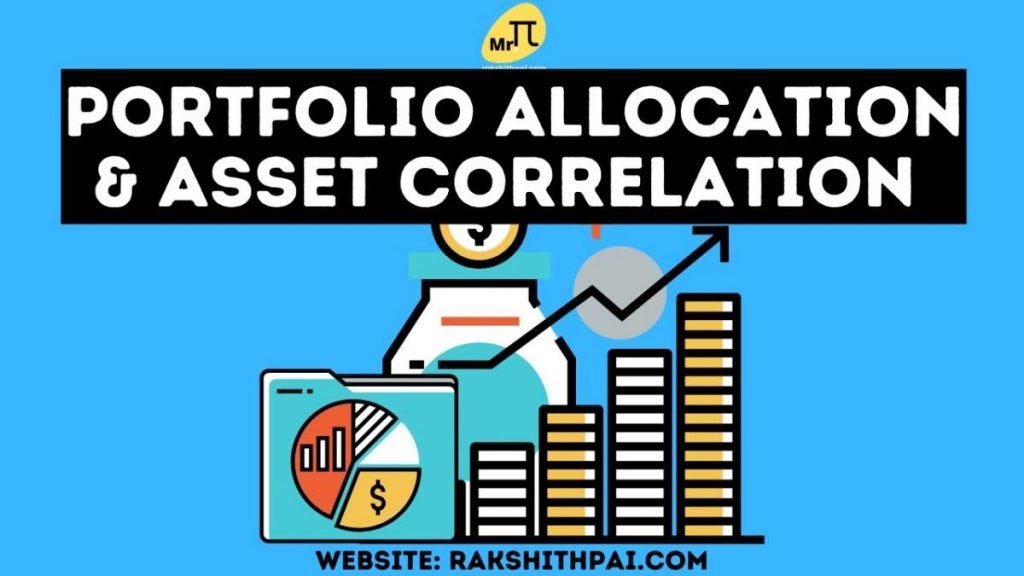Table of Contents
What is an Equity Fund?
An Equity Fund is a type of mutual fund that invests primarily in company shares or stocks. Additionally, they are referred to as “growth funds”. Equity Funds are also known as “Stock Mutual Fund”.
Equity funds are suitable investment vehicles for investors who are unfamiliar with financial investing or who lack the necessary resources to invest. For the majority of people, equity funds are a viable investment option.
The characteristics of equity funds that make them the most ideal for small individual investors are the risk reduction provided by portfolio diversification and the relatively small amount of cash required to acquire shares in an equity fund.
Individual investors would need a significant amount of investment capital to attain a similar level of risk reduction through the diversification of a portfolio of direct stock ownership. Pooling small investors’ capital allows an equity fund to diversify effectively without burdening each investor with large capital requirements.
Additionally, a classification might be made as “Diversified” or “Sectoral/Thematic.” The former invests in stocks across the globe and the latter invest in across the industry.
The price of an equity fund is determined by subtracting the fund’s liabilities from its net asset value (NAV). A more diversified fund means that the adverse price movement of a single stock has a smaller negative impact on the portfolio as a whole and on the share price of the equity fund.
Equity funds are managed by professional portfolio managers with extensive experience, and their past performance is transparent. The SEBI (Securities and Exchange Board of India) extensively regulates the transparency and reporting requirements for equity funds.
How does Equity Fund work?
Equity mutual funds invest at least 60% of their assets in equity shares of a variety of corporations in proportionate amounts. The allocation of assets will be consistent with the investment objective.
Depending on market conditions, the asset allocation can be entirely in stocks of large-cap, mid-cap, or small-cap companies. A value-oriented or growth-oriented investing style is possible. After allocating a sizable chunk to stock, the remainder may be invested in debt and money market instruments.
This is to accommodate unexpected redemption requests and to mitigate risk to a certain extent. The fund manager makes purchasing and selling decisions in order to profit from changing market conditions and maximize profits.
An Equity Fund is categorized into two parts:
Active Fund
Active fund manager searches the market, performs company research, analyses performance, and seeks out the finest stocks to invest in. When it comes to selecting when to acquire, sell, or hold shares, the management of an active mutual fund takes a more hands-on approach than with passive mutual funds.
Active funds use a wide range of methods for portfolio construction and management. The first is to achieve a higher rate of return than the market as a whole, and the second is to use the investment to protect against potential losses in the event of a market downturn.
In their offer document, the Scheme Information Document goes into detail about how they make investments and what they believe in. Returns on active funds are targeted at being higher than those of their respective benchmark indices. Additionally, the strategy of a fund determines its risk and return. Hence, with additional work being done in an active fund, the fees and management charges on the fund are also higher.
Passive Fund
In a passive fund, the fund manager constructs a portfolio that closely matches the performance of a major market index, such as the Sensex or the Nifty Fifty.
In finance, “passive” refers to “index” funds, which follow a market index and aim to provide returns that are similar to the index. By managing passive funds, investors follow the index’s allocation to its components. Basically, cloning a benchmark.
The goal of these “passive” funds is to give investors returns that are similar to market returns. Mutual funds that track stock indices, such as the Nifty 50 or a sector index, are known as passive equity funds. Passive equity funds are the best option for novice investors who are struggling to select suitable equity assets for their portfolio.
They are basic, cheap, and straightforward to monitor. Investors can choose from the following varieties of index funds such as Nifty 50, Nifty Next 50, Nifty 100, Sensex 30, etc.
Equity Fund Features:
Cost-Effective Investing
Equity Funds investing are cost-effective. They carry lower expenses ratios and are widely known for their efficiency. They carry low to no hidden cost. Equity Fund investing offers a wide range of products that can be chosen from and offer an optimum risk-reward strategy to choose from.
Diversification
Equity Funds are known for their diversification. Owning an Equity Fund is like owing a diversified portfolio in itself. And, since they are managed by a professional fund manager, they offer better returns for the risk taken.
By investing a small sum, you can obtain exposure to a number of high-quality equity shares. As a result, your stock portfolio is diversified and gives you a greater chance of earning a profit.
Tax Exemption
The Equity Linked Savings Scheme (ELSS), qualifies for tax exemption under Section 80C of the Income Tax Act. It features a three-year lock-in period and the ability to generate a high rate of return. Additionally, you can invest in an ELSS in installments.
For more information on ELSS Funds. Check this article, CLICK HERE!
Types of Equity Mutual Funds?
As said earlier, an equity fund can be categorized in multiple ways. Following are some of the known types:
Based on Market Capitalization
Here, Equity Funds is categorized based on their market cap. Each level of capitalization carries its own certainty with risk rewards. Thus, a professional fund manager categorizes Equity Funds as follows.
Large-Cap Funds
These funds typically invest at least 80% of their total assets in the equity securities of large-cap firms (the top 100). These funds are thought to be more stable than mid-cap or small-cap funds. They are invested in some of India’s largest and financially stable companies that are market leaders or dominants in their industry.
Mid-Cap Funds
Here, a Fund manager typically invests approximately 65% of their entire assets in mid-cap firms’ equity shares (101-250th placed companies according to market capitalization). These funds often earn higher returns than large-cap funds, but they are also more volatile.
They are considered to be the next large-cap companies due to their exceptionally above-average performance. A moderate risk and return kind of investments are seen in this range of funds.
Small-Cap Funds
A FUnd manager invests approximately 65% of their total assets in equity securities of small-cap enterprises (companies ranked 251st or lower in terms of market capitalization). This is a lengthy list, and it encompasses more than 95% of all businesses in India. These funds typically give higher returns than large-cap and mid-cap funds but are also quite volatile.
Small-cap funds pose a higher risk. Hence, risk-taking investors will participate in such an investment. Here, the chances of losing one’s capital will be higher. But, with high risk comes high returns, hence, an investor can expect higher returns from small-cap Equity funds.
Mixed-Cap Funds
Also known as “Multi-Cap Funds”, Here, a professional fund manager invests approximately 65% of their total assets in varying amounts in equity securities of large-cap, mid-cap, and small-cap corporations.
The fund manager of these plans constantly rebalances the portfolio to reflect the market and economic conditions as well as the scheme’s investment aim. These strategies provide an excellent balance of lower volatility and higher returns.
Based on Investment Strategy
Every sector reacts to Economic twists & turns uniquely. This makes investing in a certain sector during a certain period a logical sense and is more beneficial to investors. Also, let’s not forget that we all on some level carry our own sense of expertise in certain sectors over the other.
Keeping it all in mind, the following funds were created.
Sectoral Funds
Also known as “Theme-based Investing”. An equity fund may choose to invest in a particular investment theme, such as international stocks or emerging markets. Additionally, certain schemes may focus on a particular area of the market, such as FMCG, IT, or Pharmaceuticals (Pharma sector got more traction during recent times mainly due to the Pandemic).
It is critical to remember that sector or theme-based funds offer a greater risk profile due to their narrow emphasis on a particular area or theme. But, they can also be a great opportunity for an investor to showcase his/her expertise in the field.
Focused Equity Fund
Also known as “Concentrated Investing”. This fund invests in a maximum of 30 stocks of companies with a specified market capitalization or theme or at the preference of the Fund manager, at the time of the scheme’s commencement.
If the Fund manager is good at what he does, this fund could give more returns than any other fund. Because, here, we are not restricting the fund to any class or segments. But, instead, we are giving the Fund manager a completely free hand to choose his best. Thus, a handful of companies that he/she thinks could outperform others.
Contra Equity Fund
As the name implies, these funds employ a contrarian investment strategy. These strategies comb the market for underperforming equities and purchase them at bargain-basement prices with the expectation that they will rebound in the long run.
A more speculative investing strategy that may or may not yield expected return. Here, we are taking chances hence this type of investing could pose more risk than others with probable returns.
Based on Tax Benefits
Every Investor investing all around the globe has two reasons for investing. One being an obvious reason, which is – Return over Capital. And, the other reason is to save Tax.
Keeping such investors in mind, Our Finance world has come up with the 3rd and one of the most favored forms of Equity Funds that concentrate on not only providing return over investment but also giving tax benefits.
Equity Linked Savings Scheme (ELSS)
ELSS Funds are the only equity schemes that entitle investors to tax benefits of up to Rs. 1.5 lakh under Section 80C of the Income Tax Act. These funds must invest at least 80% of their total assets in equities and equity-related products. Additionally, these plans have a three-year lock-in term.
For more information on ELSS Funds. Check this article, CLICK HERE!
How are Equity Funds taxed?
Tax on investments are of two types, as follows:
Tax on Capital Gains
If funds are held for a period of more than 12 months, they qualify for LTCG; if held for less than 12 months, they qualify for STCG.
LTCG (long-term capital gains) tax is levied at 10% on capital gains exceeding Rs. 1 lakh (long-term capital gains on equity-oriented mutual funds or equity shares) in a calendar year without regard to indexation.
A 15% STCG (short-term capital gains) tax is applicable to investments in equity funds, provided the seller pays a 0.001% STT (Security transaction tax).
However, ELSS funds are distinct from other types of funds in that they have a three-year lock-in term. This means that ELSS mutual funds may be redeemed only once the lock-in period has expired. ELSS funds are a tax-advantaged investment option under Section 80C.
Dividend Distributions (DDT)
This tax is deducted at the point of sale. As a result, when the mutual fund pays dividends, it deducts 10% DDT from the payment before distributing it.
Why should you invest in an Equity Fund?
Equity funds enable you to engage in the capital market without having to pick specific stocks or sectors. Historically, investors with excellent market expertise earned high returns in the equity market. Equity mutual funds, on the other hand, employ skilled fund managers to do research on your behalf. Several advantages of investing in equity funds include the following:
- Equity Funds are managed by Professional Fund managers.
- They offer low-cost investment opportunities.
- Convenient to Invest.
- It provides a variety of options to choose from.
- Equity Funds are Diversified Investments
- Equity Fund investing is flexible in nature.
- They are liquid assets and can be redeemed whenever required.
- Tax Benefits under ELSS scheme.
- Zero-Knowledge required.
- Can be Invested Via SIP and Lumpsum means.
Top 5 Best performing Equity Fund:
- Quant Tax Plan (ELSS).
- Quant Active Fund (Mixed-Cap Fund).
- PGIM India Midcap Opportunities Fund (Mid-Cap Fund).
- Kotak Small Cap Fund (Small-Cap Fund).
- Mirae Asset Emerging Bluechip Fund (Mixed-Cap Fund).
Conclusion:
Before investing in a mutual fund, consider which mutual fund is the greatest fit for your investment objectives and risk tolerance. You have to investigate the track record of the mutual fund house and the fund manager. And, you should invest in a mutual fund only if you are satisfied with the fund manager’s investment strategy, performance track records, and future scope.
You must verify the expense ratio before investing in a mutual fund. The best mutual funds may have a lower expense ratio. However, you should consider additional vital factors before investing in a mutual fund. You’ll notice that the best mutual funds have a lower portfolio turnover ratio. You may wish to avoid mutual funds whose portfolios are churned frequently by the fund manager.
Depending on your investing horizon, you can choose the best mutual funds. You may invest in equity funds only if you have a three-year or longer investment horizon. You may invest in debt funds if your investment horizon is less than three years. Invest in balanced or hybrid funds only if you have a three- to the five-year investing horizon.
To determine the best mutual funds, you can compare their performance to a benchmark index. For instance, you can compare the performance of a large-cap fund to the Nifty 50 index. Compare the mutual fund’s performance to that of its peers and also consider the fund’s consistency of performance. Over a five-year period or longer, the best mutual funds consistently outperform peers and the benchmark index.
You can also select the largest mutual fund house with a sizable asset base (AUM). If the fund firm manages a sizable amount of assets, it may be able to withstand rapid redemption demand.
By and large, equity funds are known to provide returns of roughly 10% to 12%. (pre-tax). This is an average statistic, and each fund’s performance will vary according to market conditions. Selecting the appropriate scheme goes a long way toward ensuring that you earn a healthy return on your investment. And, always choose long-term investing if that’s an option for you.
Disclaimer: All the information on this website is published in good faith and for general information purpose only.









